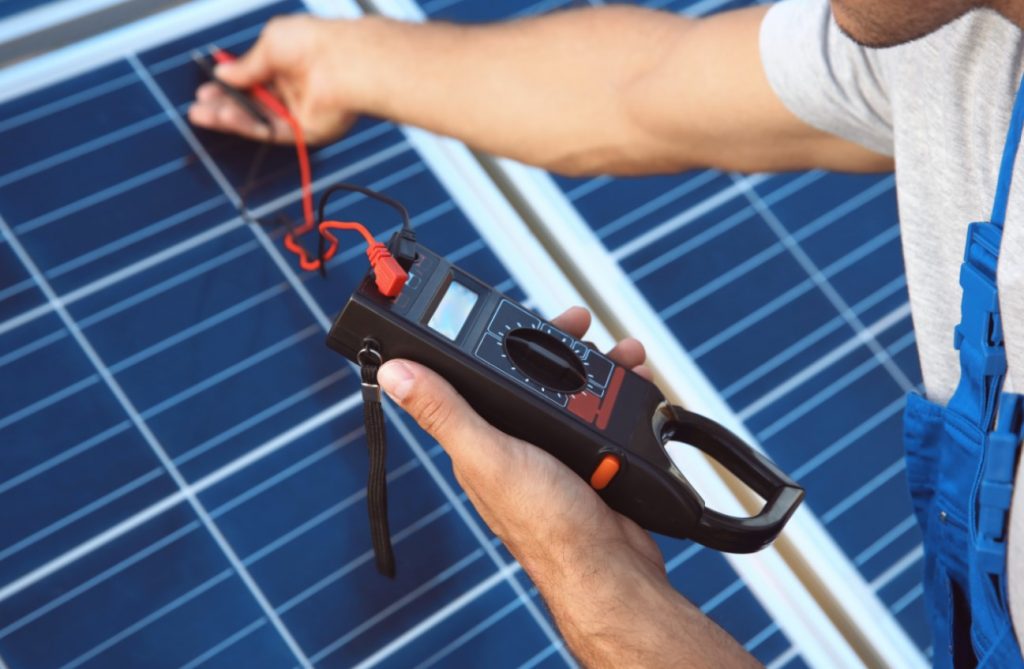Solar Panels: Internal Tests Confirm the Reliability of Engineered Plastic Components
Generating energy from renewable resources is generally associated with high costs and investments. Various influencing factors such as acquisition, financing and operating costs play an important role. An important aspect is the runtime of a system in order to write off the resulting costs over a longer period of time.
Photovoltaic systems, especially solar panels, now have a product guarantee of up to 15 years and a performance guarantee of up to 25 years. This is why solar panels are put through their paces during their qualification and certified according to international standards such as the IEC and UL standards.

But what good is it if the solar panels perform for 25 years but the substructure fails in wind and weather?
igus® carries out internal quality tests, which verify the reliability and durability of our products. This results in an optimal symbiosis of metal construction and our plastic self-aligning bearings. The whole thing is carried out in our in-house test laboratory.

The igus® test laboratory covers approximately 41,000ft² and is the largest test laboratory for tribo-polymers to date. We subject our solutions for the solar industry to strict tests, which are intended to check wear and tear (pictured below: wear test with 1.5T load) as well as the resilience and breaking strength of the respective components. Cyclical movements are used that should reflect at least 25 years. To simulate strong wind loads, high tensile and compressive loads are applied and tested until they break. To further check the material properties, our iglide® materials are subjected to a special UV test and then analyzed for their bending properties.

Thanks to many years of know-how and countless test attempts, service life, static load-bearing capacity and wear can be determined in detail. Furthermore, other system solutions with the same material structure have been in outdoor use and in continuous operation for several years. Regular checks confirm the reliability of our products.
Since not every application is the same, technical requirements can vary from system to system. Therefore, we find it particularly important to respond to customer-specific tests and to implement them.
If you'd like us to run tests that are specific to your application requirements, contact us here. You can also learn more about our plastic bearings test lab here.



